 In the past few years the Maryland legislature has weakened its stance on the prosecution of marijuana possession cases. This trend began with the passing of laws that allow defendants charged with possession of marijuana to assert the legal defense of medical necessity. The Maryland legislature also went on to pass a law that will decrease the maximum jail sentence that a defendant charged with a first offense of possession of marijuana can receive. Come October, a first offense for marijuana possession will carry a 60 day maximum jail sentence rather than the scarcely used 1 year maximum jail sentence. Surprisingly though, the Maryland legislature has remained silent on the issue of synthetic marijuana.
In the past few years the Maryland legislature has weakened its stance on the prosecution of marijuana possession cases. This trend began with the passing of laws that allow defendants charged with possession of marijuana to assert the legal defense of medical necessity. The Maryland legislature also went on to pass a law that will decrease the maximum jail sentence that a defendant charged with a first offense of possession of marijuana can receive. Come October, a first offense for marijuana possession will carry a 60 day maximum jail sentence rather than the scarcely used 1 year maximum jail sentence. Surprisingly though, the Maryland legislature has remained silent on the issue of synthetic marijuana.
Synthetic marijuana is not a new substance, as it has been around for almost 10 years, but it has become increasingly popular over the last few years. More gas stations, convenience stores, and liquor stores are beginning to stock their shelves with the substance often referred to as spice or K2. And the synthetic marijuana has been flying off these shelves lately as a legal, easy to obtain alternative to marijuana. The substance is also desirable because although it can be tested for, it does not produce a positive drug test for marijuana or cannabis. With the increase in synthetic marijuana’s popularity comes increased attention by lawmakers and law enforcement, but will lawmakers actually take action to regulate the fake marijuana?
Continue reading →
 Criminal Defense Lawyer Blog
Criminal Defense Lawyer Blog


 The recent movement to legalize medical marijuana in Maryland has been gaining steam each year, and the state legislature is slowly moving toward joining 17 other states and Washington D.C. as medical marijuana states. Although there is no medical marijuana bill currently being debated, the Maryland legislature is trending in the medical marijuana direction, as evidenced by recent bills that have modified state marijuana laws. Just last year, the Maryland governor signed off on a law that effectively decriminalizes marijuana use provided that the accused can produce a valid note from a licensed medical doctor that indicates a medical necessity for the drug. In addition, the Maryland legislature passed a law that will lower the maximum penalty for simple possession of marijuana from 1 year in jail to 90 days in jail. On the other hand, medical marijuana is still not legal in Maryland, and regardless of where the state legislature is trending, thousands of Marylanders are still being arrested for possession of the drug each year.
The recent movement to legalize medical marijuana in Maryland has been gaining steam each year, and the state legislature is slowly moving toward joining 17 other states and Washington D.C. as medical marijuana states. Although there is no medical marijuana bill currently being debated, the Maryland legislature is trending in the medical marijuana direction, as evidenced by recent bills that have modified state marijuana laws. Just last year, the Maryland governor signed off on a law that effectively decriminalizes marijuana use provided that the accused can produce a valid note from a licensed medical doctor that indicates a medical necessity for the drug. In addition, the Maryland legislature passed a law that will lower the maximum penalty for simple possession of marijuana from 1 year in jail to 90 days in jail. On the other hand, medical marijuana is still not legal in Maryland, and regardless of where the state legislature is trending, thousands of Marylanders are still being arrested for possession of the drug each year. 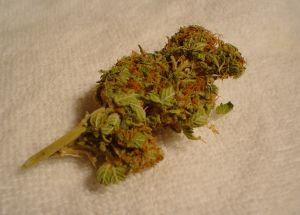 A Maryland man was recently the victim of an armed robbery in his home in College Park. Amongst the property the man reported stolen to the police was about $600 of rent money and the man’s stash of marijuana. Yes, you heard that correctly. The College Park man reported to police that the robbery suspects were armed with handguns and had demanded that the man turn over his money and his drugs. The robbery suspects reportedly assured the man that he would not be in any danger if he complied with the request to give up his money and his marijuana. A nice gesture by the armed home invasion robbers, but a gesture that will certainly not help the suspects in court if they are ever arrested. The Maryland man complied and handed over his rent money and an unknown quantity of marijuana, and then the robbery suspects left the house. Police also reported that the armed robbery suspects took laptops and cell phones from the house, but the Maryland man was not aware of this missing property at the time he initially reported the crime to police.
A Maryland man was recently the victim of an armed robbery in his home in College Park. Amongst the property the man reported stolen to the police was about $600 of rent money and the man’s stash of marijuana. Yes, you heard that correctly. The College Park man reported to police that the robbery suspects were armed with handguns and had demanded that the man turn over his money and his drugs. The robbery suspects reportedly assured the man that he would not be in any danger if he complied with the request to give up his money and his marijuana. A nice gesture by the armed home invasion robbers, but a gesture that will certainly not help the suspects in court if they are ever arrested. The Maryland man complied and handed over his rent money and an unknown quantity of marijuana, and then the robbery suspects left the house. Police also reported that the armed robbery suspects took laptops and cell phones from the house, but the Maryland man was not aware of this missing property at the time he initially reported the crime to police.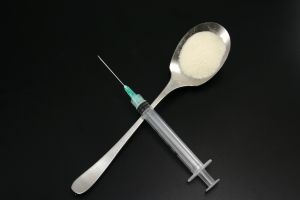 A routine traffic stop over the weekend led Maryland police to nearly 100 grams of heroin as well as a forged oxycodone prescription. The traffic stop took place in Annapolis and resulted in the arrest of 3 Maryland residents for various criminal offenses including drug possession, theft, and drug possession with intent to distribute. Although the traffic stop was routine, the events that followed the stop and led police to the drugs were hardly routine, and could raise multiple legal issues. Annapolis police stopped the bright green Lincoln at around 5 p.m. for an undisclosed traffic violation. The undisclosed traffic violation could be for anything from a broken taillight to failure to stop at a stop sign but chances are that the bright green car caught the eye of the Annapolis cops. As many criminal lawyers know, when a car raises red flags police typically will not wait for a traffic infraction to occur before making a traffic stop. Rather they will make the stop and then figure out a believable traffic infraction later.
A routine traffic stop over the weekend led Maryland police to nearly 100 grams of heroin as well as a forged oxycodone prescription. The traffic stop took place in Annapolis and resulted in the arrest of 3 Maryland residents for various criminal offenses including drug possession, theft, and drug possession with intent to distribute. Although the traffic stop was routine, the events that followed the stop and led police to the drugs were hardly routine, and could raise multiple legal issues. Annapolis police stopped the bright green Lincoln at around 5 p.m. for an undisclosed traffic violation. The undisclosed traffic violation could be for anything from a broken taillight to failure to stop at a stop sign but chances are that the bright green car caught the eye of the Annapolis cops. As many criminal lawyers know, when a car raises red flags police typically will not wait for a traffic infraction to occur before making a traffic stop. Rather they will make the stop and then figure out a believable traffic infraction later.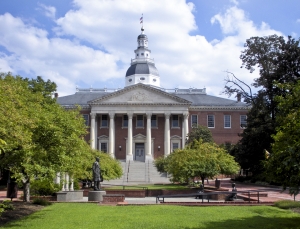 The Maryland Legislature recently passed a bill that will lower the maximum penalty for possession of marijuana from 1 year in jail to 90 days in jail. Maximum fines for marijuana possession will also drop from $1000 to $500. The bill was signed into law by Governor O’Malley and will go into effect in October of 2012. The Maryland marijuana bill only applies to simple possession of less than 10 grams of the plant, a compromise between the two legislative chambers. The Maryland Senate wanted the new bill to apply to possession of any amount less than 14 grams of marijuana, or one half ounce, but the Maryland House wanted reduced punishments only for less than 7 grams, or one quarter ounce of marijuana. The Maryland law makers eventually agreed on the 10 gram limit, and the bill easily passed both chambers by a vote of 41-5 in the Senate, and 92-31 in the House.
The Maryland Legislature recently passed a bill that will lower the maximum penalty for possession of marijuana from 1 year in jail to 90 days in jail. Maximum fines for marijuana possession will also drop from $1000 to $500. The bill was signed into law by Governor O’Malley and will go into effect in October of 2012. The Maryland marijuana bill only applies to simple possession of less than 10 grams of the plant, a compromise between the two legislative chambers. The Maryland Senate wanted the new bill to apply to possession of any amount less than 14 grams of marijuana, or one half ounce, but the Maryland House wanted reduced punishments only for less than 7 grams, or one quarter ounce of marijuana. The Maryland law makers eventually agreed on the 10 gram limit, and the bill easily passed both chambers by a vote of 41-5 in the Senate, and 92-31 in the House.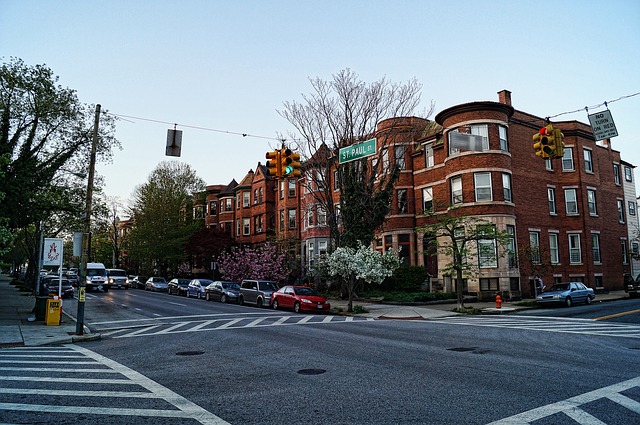 The Baltimore Police department has not been meeting the terms of a settlement regarding illegal arrests according to the ACLU. The settlement arose out of a 2006 lawsuit, which alleged a pattern of thousands of unlawful arrests for various non violent, low level crimes such as drug possession, trespassing, and loitering in Baltimore City. The civil lawsuit was filed by the ACLU on behalf of 14 people that were arrested in Baltimore without probable cause. The lawsuit stated that due to Baltimore City’s zero tolerance policy, Baltimore police officers began unlawfully arresting people on the street at an alarming rate.
The Baltimore Police department has not been meeting the terms of a settlement regarding illegal arrests according to the ACLU. The settlement arose out of a 2006 lawsuit, which alleged a pattern of thousands of unlawful arrests for various non violent, low level crimes such as drug possession, trespassing, and loitering in Baltimore City. The civil lawsuit was filed by the ACLU on behalf of 14 people that were arrested in Baltimore without probable cause. The lawsuit stated that due to Baltimore City’s zero tolerance policy, Baltimore police officers began unlawfully arresting people on the street at an alarming rate. 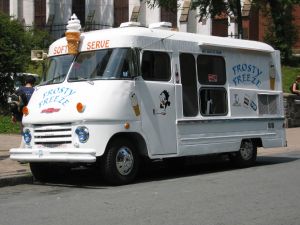 A Maryland man was recently arrested for selling marijuana and other drugs from his ice cream truck according to police in Charles County. The alleged Maryland drug dealer was arrested based on a tip from Crime Solvers. The tip apparently informed police that the 20 year old man had been illegally selling packets of marijuana while at the same time legally selling frozen treats in southern Maryland neighborhoods. Police responded to the tip and sent a investigative unit to attempt to observe the ice cream drug dealer in action. Police investigative units apparently were not able to catch the Maryland man actually performing a hand to hand transaction with a would be marijuana buyer, but they were able to secure an arrest with the help of a canine police unit.
A Maryland man was recently arrested for selling marijuana and other drugs from his ice cream truck according to police in Charles County. The alleged Maryland drug dealer was arrested based on a tip from Crime Solvers. The tip apparently informed police that the 20 year old man had been illegally selling packets of marijuana while at the same time legally selling frozen treats in southern Maryland neighborhoods. Police responded to the tip and sent a investigative unit to attempt to observe the ice cream drug dealer in action. Police investigative units apparently were not able to catch the Maryland man actually performing a hand to hand transaction with a would be marijuana buyer, but they were able to secure an arrest with the help of a canine police unit.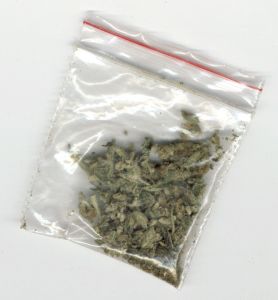 A Baltimore area marijuana dealer has been sentenced to over 20 years in prison after the jury found him guilty at trial. Defense lawyers were unable to overcome the strong evidence that federal prosecutors presented during two weeks of testimony in United States district court in Maryland. The convicted Baltimore drug dealer was arrested in 2010 and charged with distribution of marijuana and conspiracy to commit money laundering. Both the internal revenue service and the federal drug enforcement agency participated in the investigation, which ultimately let to a multi count indictment.
A Baltimore area marijuana dealer has been sentenced to over 20 years in prison after the jury found him guilty at trial. Defense lawyers were unable to overcome the strong evidence that federal prosecutors presented during two weeks of testimony in United States district court in Maryland. The convicted Baltimore drug dealer was arrested in 2010 and charged with distribution of marijuana and conspiracy to commit money laundering. Both the internal revenue service and the federal drug enforcement agency participated in the investigation, which ultimately let to a multi count indictment.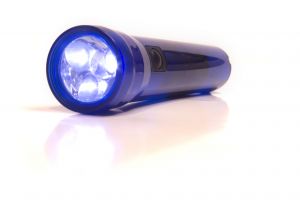 Maryland jails will continue to have the power to strip-search a person who is arrested for any crime, regardless of whether cops are suspicious that contraband may be present. The Supreme Court ruled 5-4 in favor of upholding jail house strip-searches in an April 2 decision. The ruling will allow Baltimore police to strip-search any person arrested before he or she is admitted into the jail for any type of crime. Defendants arrested for minor crimes such as driving without a license, failing to pay child support, or even violating a dog leash law are also subject to strip-search upon being booked into the jail.
Maryland jails will continue to have the power to strip-search a person who is arrested for any crime, regardless of whether cops are suspicious that contraband may be present. The Supreme Court ruled 5-4 in favor of upholding jail house strip-searches in an April 2 decision. The ruling will allow Baltimore police to strip-search any person arrested before he or she is admitted into the jail for any type of crime. Defendants arrested for minor crimes such as driving without a license, failing to pay child support, or even violating a dog leash law are also subject to strip-search upon being booked into the jail. Each year thousands of defendants are arrested in Maryland for possession of marijuana and other drugs such as cocaine and and prescription pills. The costs of enforcing Maryland marijuana laws and other drug laws were revealed in part one of this post. In part two we will discuss the possible positive effects of decriminalizing marijuana in Maryland.
Each year thousands of defendants are arrested in Maryland for possession of marijuana and other drugs such as cocaine and and prescription pills. The costs of enforcing Maryland marijuana laws and other drug laws were revealed in part one of this post. In part two we will discuss the possible positive effects of decriminalizing marijuana in Maryland.